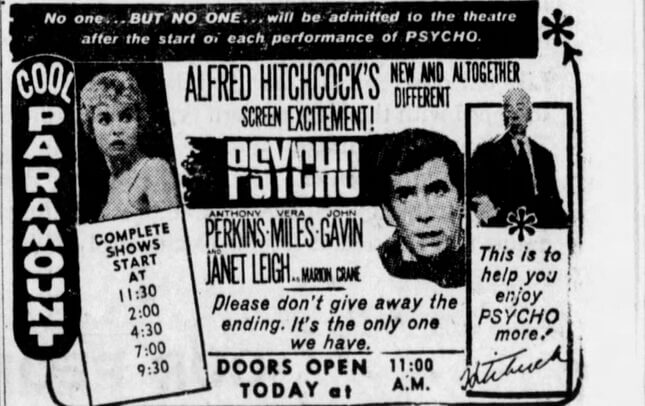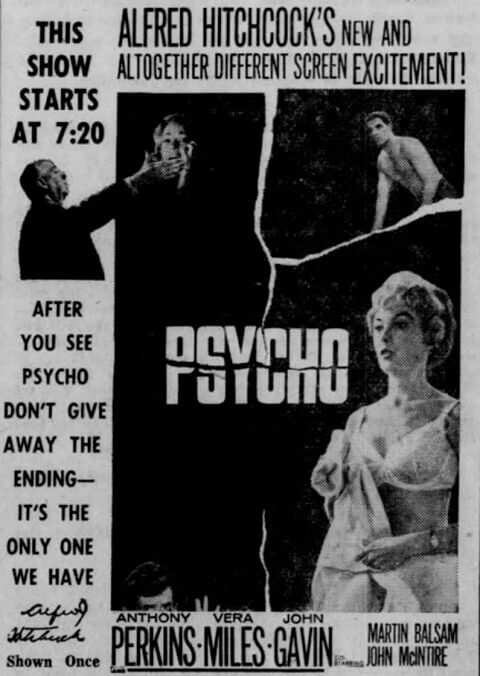

The new thing in Hollywood is asking, telling, pleading with audiences and critics not to spoil plot twists. Except this is not a new thing; it’s the long shadow of that creep, Alfred Hitchcock.
Deadline reported that, in advance of the Cannes premiere of Once Upon a Time… in Hollywood, Quentin Tarantino has posted an open letter asking everybody to keep their traps shut about the movie’s details: “The cast and crew have worked hard to create something original, and I only ask that everyone avoids revealing anything that would prevent later audiences from experiencing the film in the same way.” The film’s Twitter account distributed it in retro form.
This is after the Russo brothers, directors of Avengers: Endgame, released a statement asking nobody to spoil their movie, and Marvel ran a hashtag campaign, #DontSpoilTheEndgame, on Twitter. Bloody Disgusting quickly noted the similarity to the marketing strategy for Psycho.
-

-

-

-

-

-

-

-

-

-

-

-

-

-

-

-

-

-

-

-

-

-

-

-

-

-

-

-

-

-

-

-

-

-

-

-

-

-

-

-









































